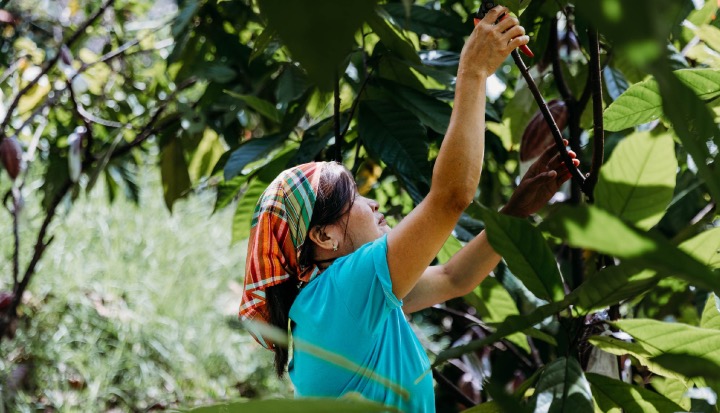There is an estimate 600 million small farmers they work to produce a third of our global food supply. As climate challenges mount, these farmers are disproportionately affected by changing weather and rising temperatures, which drought, erosion, pests and diseases. The stakes are high for both lifting people out of poverty and ensuring food security. We urgently need solutions that strengthen the livelihoods of smallholder farmers and tackle the growing climate crisis.
This is where carbon sequestration comes into play. It is estimated how much carbon can be sequestered in the soil 5.5 billion tons of carbon dioxide annually. Smallholder farmers can play an important role in contributing to these efforts.
Innovations capable of sequestering carbon and creating revenue opportunities from the trapped substance at the same time prove that we can solve both problems in a way that ensures no one is left behind.
Carbon credits are being launched in the Philippines
in the Philippines, MEDA – Mennonite Economic Development Associates – Canadian-funded Global Affairs works to maintain ecological integrity in and around cocoa farms and create decent work opportunities for smallholder cocoa farmers. RIISA project. A a new carbon credit initiative is currently ongoing within the framework of the joint project with Kennemer Foods International. Through the partnership, climate funds are earned as cocoa farmers plant endemic tree species with cocoa as the main economic product, the carbon is then sold as credits to international buyers seeking to offset greenhouse gas emissions in the voluntary carbon market. All profits are shared with participating farmers – often through advance payments to support income security.
Additional climate income aims to encourage smallholder cocoa farmers to engage in environmentally responsible management practices. Farmers can then use the income to increase cocoa productivity by investing in seedlings, farm implements or fertilizer, and for basic needs such as food and education.
Carbon-rich biochar is making an impact in Ghana
Carbon also offers new revenue opportunities in Ghana. Biochar is a carbon-rich material obtained from the thermal decomposition of organic biomass under low oxygen conditions. The process, known as pyrolysis, involves heating organic matter – usually household waste – to temperatures where it would normally burn and then stripping it of oxygen. Normally, what goes up in smoke is kept in solid form. This stabilized biomass, known as biochar, is then converted into a form of carbon that will improve soil properties and not break down and be released into the atmosphere as carbon dioxide. Thus, greenhouse gas emissions are reduced and economic opportunities are created for small farmers through the provision of carbon credits.
With the support of MEDA GROW2 project and funded by Global Affairs Canada, biochar has already demonstrated impressive impact and potential for scale in Ghana. From January to April 2024, 10,000 bags of biochar were produced and more than $50,000 in carbon credits were generated for smallholder farmers. These funds will allow them to invest in agricultural technologies, seeds and services to set them up for success in the upcoming production season and beyond. The initiative became the first certified artisanal biochar project in West Africa.
Without leaving anyone behind
Innovations piloted in the Philippines and Ghana are critical to encouraging smallholder farmers to adopt climate-smart practices, which often require cash investments and technical assistance. out of reach for many. Providing technical and financial support is key for smallholder farmers to get started. with less than two percent As climate finance is reportedly allocated to these small entrepreneurs, we need to find sustainable ways to increase these investments. Impact investment funds that aim to scale climate innovation to improve small farms offer one way to do this.
As climate challenges rise, investment funds to accelerate the commercialization and widespread availability of these innovations will enable smallholder farmers to become more resilient, ensuring their continued access to decent work opportunities and strengthening global food security. Working in partnership to finance and thereby scale up the most effective innovations will ensure that climate action is inclusive and benefits everyone.

